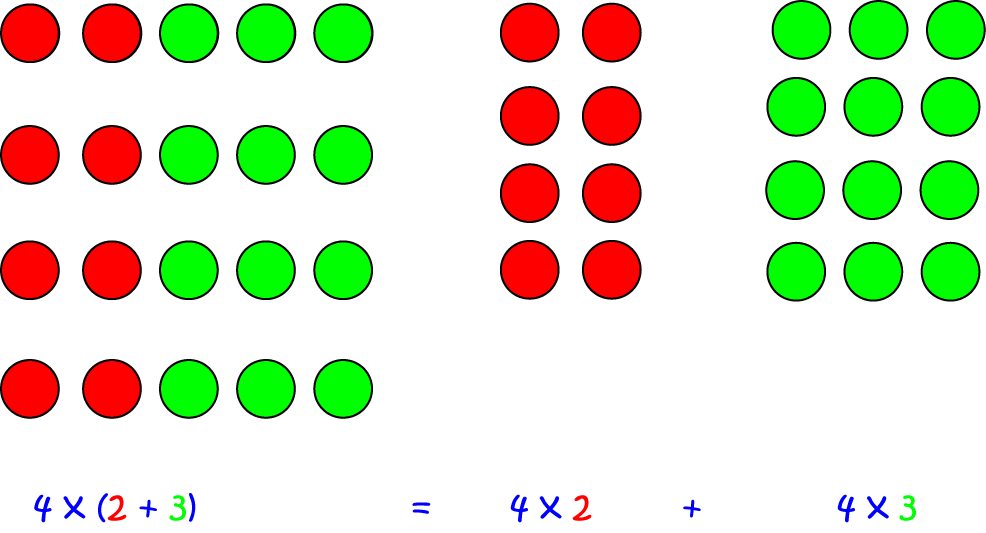Math Definitions - Letter D
Chapters
Distributive Law
Definition of Distributive Law

The distributive law is a law of algebra. It tells you that when you multiply a number by a group of numbers that have been added together, you get the same result as when you calculate the products individually and then add them together:
For example,
So, multiplying \(4\) by \((2 + 3 ) = 5\) gives the same result as distributing the multiplication across the plus sign to give the products \(4 \times 2\) and \(4 \times 3\), and then adding the results together. In both cases, you get the answer \(20\).
Description
The aim of this dictionary is to provide definitions to common mathematical terms. Students learn a new math skill every week at school, sometimes just before they start a new skill, if they want to look at what a specific term means, this is where this dictionary will become handy and a go-to guide for a studen
Audience
Year 1 to Year 12 students
Learning Objectives
Learn common math terms starting with letter D
Author: Subject Coach
Added on: 6th Feb 2018
You must be logged in as Student to ask a Question.
None just yet!